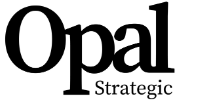In the contemporary digital environment, political campaigns must navigate a landscape rife with misinformation. False narratives, once unleashed, proliferate rapidly on social media platforms, undermining democratic processes and eroding public trust.
From the “Pizzagate” conspiracy during the 2016 United States presidential election to misleading health information during the COVID-19 pandemic, the repercussions of misinformation are starkly evident.
Pizzagate as a Case Study in Misinformation
In 2016, a conspiracy theory dubbed “Pizzagate” emerged online, falsely claiming a Washington D.C. pizzeria was the epicenter of a child-trafficking ring, purportedly linked to Hillary Clinton’s campaign manager, John Podesta. This baseless story quickly went viral, illustrating how unverified reports could incite real-world consequences, such as a North Carolina man firing a rifle inside the pizzeria under the delusion of trying to save the children allegedly trapped inside.
Source: The New York Times, “In Washington Pizzeria Attack, Fake News Brought Real Guns,” 2016 (https://www.nytimes.com/2016/12/05/business/media/comet-ping-pong-pizza-shooting-fake-news-consequences.html)
Campaigns must grapple with the speed and scale at which misinformation spreads and the complexity of correcting it. However, there are strategies to counteract these false narratives effectively.
1. Establishing a Rapid Response Team 🦺🦺
Campaigns need to stay ahead of the curve, monitoring what’s being said about their candidates, policies, and events in real time. By establishing a rapid response team, campaigns can quickly debunk misinformation before it gains traction. This team’s role is crucial in not just correcting inaccuracies but also in communicating the truth in a clear, concise, and effective manner.
2. Collaborating with Fact-Checkers and Credible Sources ✅❌
Building relationships with independent fact-checkers and reputable news sources can significantly enhance a campaign’s credibility. For instance, during the 2020 Presidential Election, both campaigns, especially Joe Biden’s team, worked closely with organizations like FactCheck.org and Snopes, to identify and address misinformation circulating online.
Source: BBC, “US election 2020: Fact-checking Trump team”’s main fraud claims,” 2020 (https://www.bbc.com/news/election-us-2020-54874120)
3. Leveraging Social Media Platforms 🥳✨
Social media platforms are double-edged swords, acting as conduits for both information and misinformation. Campaigns can use these platforms to their advantage by regularly publishing verified information, using platform-specific tools to report and remove false content, and actively engaging with their online community to discredit false narratives.
4. Investing in Digital Literacy Programs 📖💻
Long-term, campaigns should invest in and support digital literacy programs. Educating the electorate about how to discern reliable sources from misleading ones is crucial. This initiative can be seen in action with Finland’s nationwide program, which teaches students from a young age how to spot propaganda, understand bias, and question sources of information.
Source: CNN, “Finland is winning the war on fake news. Other nations want the blueprint,” 2019 (https://edition.cnn.com/interactive/2019/05/europe/finland-fake-news-intl)
5. Promoting Transparency and Open Communication ⭐👋
Campaigns must be transparent about their policies, goals, and actions. Regular press briefings, Q&A sessions, and detailed policy explanations can help achieve this. When audiences understand the reasoning behind policies, they are less likely to be swayed by misinformation.
End-All-Be-All: A Collective Fight For Accuracy & Honesty
Combating misinformation is not just a campaign’s fight; it’s a societal one. While the strategies outlined above can significantly mitigate the spread and impact of false information, they require the collective effort of campaigns, social media platforms, and, importantly, the individuals who consume and share content. Educated voters are the ultimate defense against the misinformation epidemic, ensuring informed decisions at the polls and the integrity of democratic discourse.
Ready To Kickstart Your Own Campaign? Get Your FREE Consultation Today!

